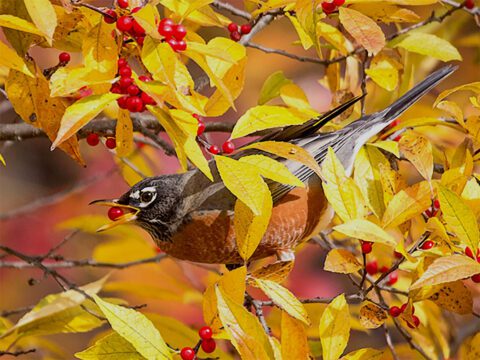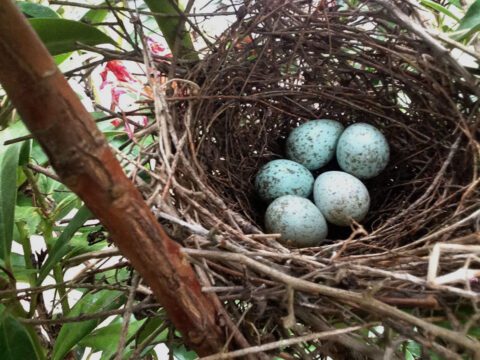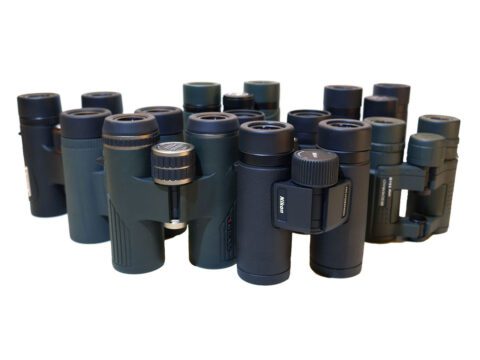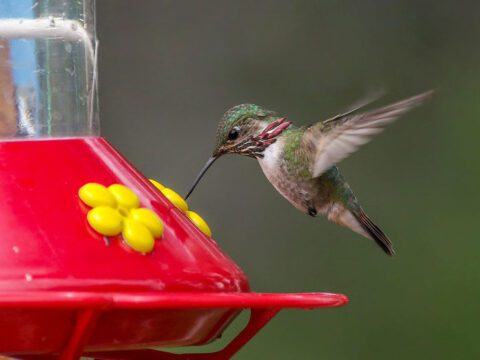What do I do if I find a sick, injured, or dead bird?
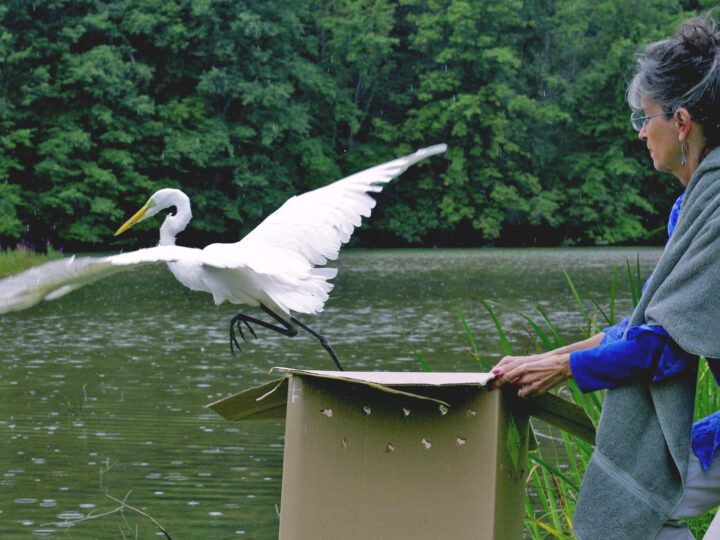
If you find a sick or injured bird, contact a wildlife rehabilitator or local veterinarian to see if they are able to care for it. Make sure you call first as some clinics don’t have the facilities to isolate sick birds, and can’t take the risk of spreading a communicable disease among their other birds. To protect yourself, your family, and your pets, don’t handle any potentially sick bird without disposable gloves, and make sure you have a box prepared for it, and a place to bring it, before you put it through the trauma of capture.
If you notice sick birds around your feeders, make sure you clean your bird feeding area. In fact, it is a good idea to regularly clean your feeders even when there are no signs of sick birds: prevention is the key to avoiding the spread of disease. To clean your feeder, take it apart and use a dishwasher on a hot setting or hand wash either with soap and boiling water or with a dilute bleach solution (no more than 1 part bleach to 9 parts water). Rinse thoroughly and allow to dry before refilling. If a sick bird does come to your feeder, minimize the risk of infecting other birds by cleaning your feeder area thoroughly. If you see several diseased birds, take down all your feeders for at least a week to give the birds a chance to disperse. And make sure to keep your birdbaths clean. Water allowed to sit for more than a few days can provide perfect breeding habitat for the very mosquitoes most likely to spread West Nile Virus.
If your area is possibly having an outbreak of West Nile Virus or other disease, you may need to report it to your county health department or department of natural resources. To find out, call your nearest game warden or conservation office. Take a look at our West Nile Virus FAQ for more information about what to do if you think you find a bird infected with the virus.
The Cornell Lab of Ornithology’s Project FeederWatch web site has additional information on sick birds, including a review of several of the more common diseases that might show up in backyard birds.
If you find a dead bird and are aware of a disease outbreak or you are concerned about health issues, contact your local or county health department or the National Wildlife Health Center. With their permission, you may proceed in collecting or disposing of the dead bird as they direct you to.
In many cases health departments will not be able to analyze a bird that has already started to decay, so you may be asked to double-bag it and put it in your freezer, or to take it to them immediately. If you do pick up the bird be sure to wear disposable gloves, and wash your hands thoroughly afterward.
If you’re instructed to bring the bird in, remember to record your name and contact information, the date and location, the bird’s species (if known) and a description of the circumstances, including your best guess about the cause of the bird’s death. If you’re instructed to freeze the bird until you can bring it to the facility, double-bag it in plastic, and put the paper with this information between the two layers.

All About Birds
is a free resource
Available for everyone,
funded by donors like you
American Kestrel by Blair Dudeck / Macaulay Library

